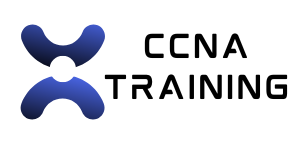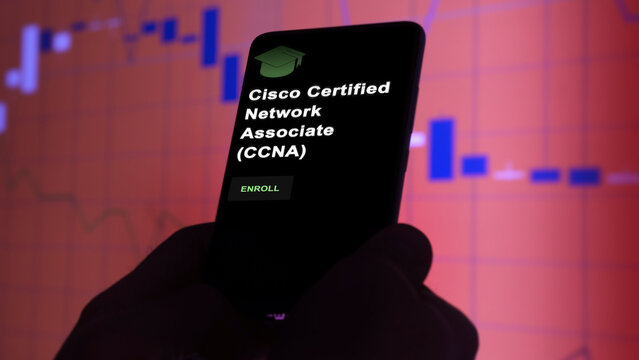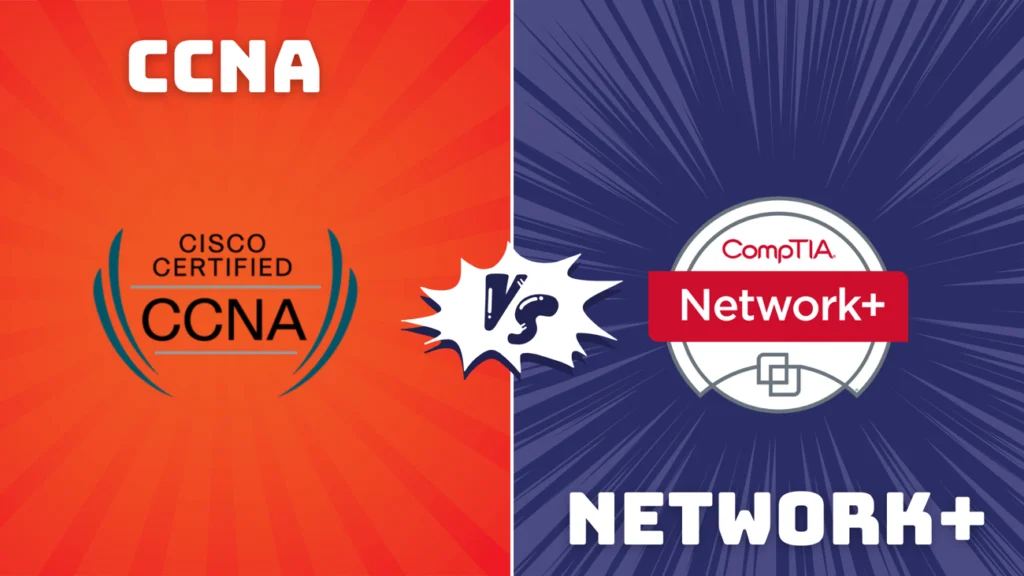CCNA, which stands for Cisco Certified Network Associate, is a widely recognized certification in the field of networking. It is an entry-level certification that validates the ability to install, configure, operate, and troubleshoot medium-sized routed and switched networks. CCNA certification is offered by Cisco, a leading provider of networking and communication solutions. The certification covers a wide range of networking topics, including routing and switching, security, wireless networking, and more. It is a valuable credential for IT professionals looking to advance their careers in networking and related fields.
CCNA certification is designed for individuals who have a basic understanding of networking and are looking to enhance their skills and knowledge in the field. It is an ideal starting point for those who are new to networking and want to establish a solid foundation in the field. The certification is also suitable for experienced professionals who want to validate their skills and stay up-to-date with the latest networking technologies. CCNA certification is highly regarded in the industry and can open up new career opportunities for individuals looking to pursue a career in networking.
Benefits of CCNA Certification
There are numerous benefits to obtaining CCNA certification. Firstly, it demonstrates a solid understanding of networking concepts and technologies, which can enhance job prospects and career advancement opportunities. Employers value CCNA certification as it signifies a commitment to professional development and a dedication to staying current with industry standards. Additionally, CCNA certification can lead to higher earning potential, as certified professionals often command higher salaries than their non-certified counterparts. This certification can also provide a competitive edge in the job market, as it distinguishes individuals as knowledgeable and skilled professionals in the field of networking.
Furthermore, CCNA certification can open doors to a wide range of job opportunities in the IT industry. With this credential, individuals can pursue roles such as network administrator, network engineer, systems administrator, and more. The certification is recognized globally, allowing certified professionals to seek employment opportunities both domestically and internationally. Additionally, CCNA certification can serve as a stepping stone to higher-level certifications, such as CCNP (Cisco Certified Network Professional) or CCIE (Cisco Certified Internetwork Expert), which can further advance one’s career in networking.
Job Opportunities with CCNA Certification
CCNA certification can lead to a variety of job opportunities in the IT industry. With this credential, individuals can pursue roles such as network administrator, network engineer, systems administrator, and more. These positions often involve designing, implementing, and maintaining networking infrastructures for organizations of all sizes. Network administrators are responsible for managing and maintaining an organization’s computer networks, while network engineers focus on designing and implementing network solutions to meet business needs. Systems administrators are responsible for managing the day-to-day operations of an organization’s computer systems and networks.
In addition to these roles, CCNA certification can also open doors to specialized positions in areas such as security, wireless networking, and voice communications. For example, individuals with CCNA Security certification can pursue careers in network security, working to protect organizations from cyber threats and vulnerabilities. Similarly, individuals with CCNA Wireless certification can specialize in designing, implementing, and managing wireless networks for organizations. CCNA Voice certification can lead to careers in voice communications, focusing on the implementation and maintenance of voice over IP (VoIP) solutions.
How to Prepare for CCNA Certification
| Topics Covered | Study Time | Practice Tests |
|---|---|---|
| Networking Fundamentals | 40 hours | 5 |
| Routing and Switching | 60 hours | 8 |
| Network Security | 30 hours | 4 |
| Wireless Networking | 20 hours | 3 |
Preparing for CCNA certification requires a combination of study materials, hands-on practice, and dedication. There are various resources available to help individuals prepare for the exam, including official Cisco training courses, study guides, practice exams, and online forums. It is important to start by familiarizing oneself with the exam objectives and topics covered in the certification exam. This will help individuals create a study plan and focus on areas where they may need additional preparation.
Hands-on practice is essential for preparing for CCNA certification. Setting up a home lab or using simulation software can provide valuable experience with networking equipment and configurations. This hands-on practice can help individuals gain a deeper understanding of networking concepts and technologies, which can be beneficial when taking the exam. Additionally, participating in online forums and study groups can provide opportunities to connect with other individuals preparing for the exam, share knowledge, and seek advice from experienced professionals.
Tips for Passing the CCNA Exam
Passing the CCNA exam requires thorough preparation and a strategic approach. One tip for success is to create a study schedule and stick to it. Setting aside dedicated time each day for studying can help individuals stay on track and cover all the necessary material before the exam. It is also important to use a variety of study materials, such as books, videos, practice exams, and hands-on labs, to ensure a well-rounded understanding of the exam topics.
Another tip is to focus on understanding the concepts rather than memorizing information. The CCNA exam tests practical knowledge and problem-solving skills, so it is important to have a deep understanding of networking concepts and how they apply in real-world scenarios. Additionally, practicing time management during the exam is crucial. The CCNA exam has a time limit, so it is important to pace oneself and allocate enough time for each question without spending too much time on any single question.
Continuing Education and Career Growth with CCNA Certification

After obtaining CCNA certification, individuals can pursue continuing education opportunities to further advance their careers in networking. Cisco offers a range of higher-level certifications that build upon the foundation of CCNA, such as CCNP (Cisco Certified Network Professional) and CCIE (Cisco Certified Internetwork Expert). These certifications cover more advanced topics in networking and can lead to specialized career paths in areas such as routing and switching, security, wireless networking, and more.
Continuing education can also involve staying current with industry trends and technologies through professional development activities such as attending conferences, participating in webinars, and pursuing additional training courses. By staying up-to-date with the latest advancements in networking, certified professionals can enhance their skills and knowledge, making them more valuable assets to their organizations.
Real-life Success Stories of CCNA Certified Professionals
There are numerous success stories of individuals who have achieved career success with CCNA certification. For example, John Smith started his career as a help desk technician but wanted to advance into a networking role. After obtaining his CCNA certification, he was able to secure a position as a network administrator at a large corporation. With his newfound skills and knowledge, he was able to design and implement network solutions that improved the organization’s efficiency and productivity.
Similarly, Sarah Johnson had been working as a systems administrator for several years but wanted to specialize in network security. After obtaining her CCNA Security certification, she was able to transition into a role as a network security specialist at a cybersecurity firm. Her expertise in network security helped the firm protect its clients from cyber threats and vulnerabilities, ultimately leading to her advancement within the company.
In conclusion, CCNA certification is a valuable credential for IT professionals looking to advance their careers in networking. The certification provides numerous benefits, including enhanced job prospects, higher earning potential, and access to a wide range of job opportunities in the IT industry. By preparing for the exam with dedication and hands-on practice, individuals can increase their chances of passing the CCNA exam and opening doors to new career opportunities. Continuing education opportunities further enable certified professionals to advance their careers in networking and stay current with industry trends and technologies. Real-life success stories demonstrate the impact of CCNA certification on individuals’ careers and highlight the potential for career growth in the field of networking.
FAQs
What is CCNA certification?
CCNA (Cisco Certified Network Associate) certification is a widely recognized credential in the field of networking. It validates the ability to install, configure, operate, and troubleshoot medium-sized routed and switched networks.
What are the prerequisites for CCNA certification?
There are no formal prerequisites for CCNA certification, but having a basic understanding of networking concepts and some experience with networking equipment is recommended.
How do I obtain CCNA certification?
To obtain CCNA certification, you need to pass the CCNA exam, which covers a wide range of networking topics including routing and switching, security, wireless networking, and more.
What are the benefits of CCNA certification?
CCNA certification can lead to better job opportunities, higher salary potential, and increased credibility in the field of networking. It also provides a solid foundation for further career advancement in the IT industry.
How long is CCNA certification valid for?
CCNA certification is valid for three years. After that, you can recertify by passing the current CCNA exam or a higher-level Cisco certification exam.














